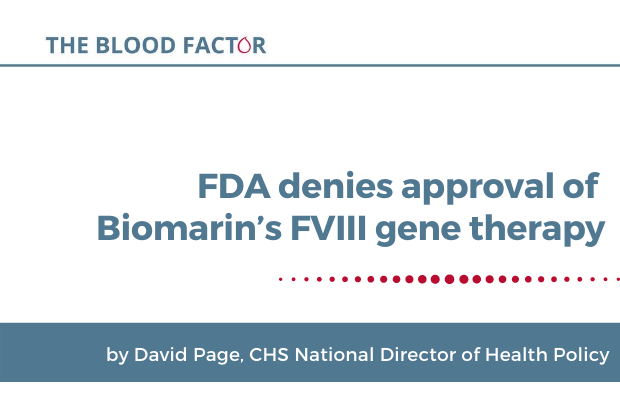FDA denies approval of Biomarin’s FVIII gene therapy

In a decision that surprised many, the U.S. Food and Drug Administration (FDA) last week denied approval of Biomarin’s FVIII gene therapy, branded Roctavian. The therapy has also been called valoctocogene roxaparvovec or valrox.
The FDA is now asking Biomarin to complete the Phase 3 study of Roctavian in 134 patients before re-evaluating. This means no decision can be expected until some time in 2022. The marketing application had been made based on Phase 1/2 trial results and only six months of data from Phase 3.
While no serious safety issues have been observed to date, concerns have been raised about gradually decreasing expression of FVIII in trial subjects. In a small group of seven patients in the Phase 1/2 study, mean levels of FVIII dropped from 64% of normal at the end of Year 1 to 24% of normal at the end of Year 4.
It is not known how this decision will affect timelines for the evaluation of other FVIII or FIX gene therapies in development, but there is no doubt that it represents a significant setback in hemophilia gene therapy.




